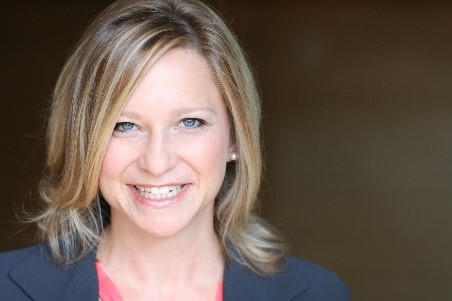I remember one of the last times Rabbi Aaron Panken z'l lifted his hands and blessed the people. It was the Rabbinic and Cantorial Ordination ceremony in 2017, nearly a year before his life was tragically cut short. Standing in front of the holy ark at Congregation Emanu-El of New York, he lifted his hands and conferred a private blessing upon each ordinee, marking each student's sacred transition into the role of clergy.
I cannot help but think of that moment when I read from this week's Torah portion:
"Aaron lifted his hands toward the people and blessed them; and he stepped down after offering the purgation offering, the burnt offering, and the offering of well being. Moses and Aaron then went inside the Tent of Meeting. When they came out, they blessed the people; and the Presence of Adonai appeared to all the people." (Lev.9: 22-23)
One wonders which words of blessing the biblical Aaron offered to the Israelite people.
According to Rashi, the Medieval French commentator, Aaron offered the words of the priestly benediction - also known as the three-fold benediction:
May God bless you and protect you.
May God deal kindly and graciously with you.
May God bestow [divine] favor upon you and grant you peace. (Num. 6:24-26)
In lifting up his hands and offering God's blessing, the Torah teaches that Aaron lifted his hands toward the people for a specific reason.
Rabbeynu Bahya, a Spanish commentator of the Middle Ages explains: The meaning of the words el ha-am, normally translated as "in the direction of the people," should here be translated as "for the sake of the people," i.e. to meet their needs. That is, his blessing was for the people, not simply to the people. The blessing was on their behalf, and for their sake.
Based on this exact verse in the Book of Numbers, the late great singer-songwriter Debbie Friedman z'l wrote a melody and sang the English words, "Lift your hands toward Israel and bless the people.'' The second part of the song draws on a text from Pirkei Avot 1:12: "Love peace and pursue peace, love your fellow people, and bring them closer to Torah."
By knitting these two texts together, Friedman teaches us that we can bless one another by bringing each other closer to the teachings of the Torah.
How best can we do that? What does it mean to bless one another? I don't know for sure, but I do know that it requires humility. It requires focus. It requires preparation.
Some may find strength by offering a traditional "pre-prayer" found in the siddur, (prayer book) which today we might call a mindfulness practice: Hareini mekabel alai et mitzvat ha boreh v'ahavta l'rei'acha kamocha. Behold, I hereby take upon myself the mitzvah of the Creator to love my neighbor as myself.
To bless others is a holy gift and a holy power. How do we know we are ready? How do we know we are capable? Rabbi Abraham Joshua Heschel guides us:
"Our goal should be to live life in radical amazement … get up in the morning and look at the world in a way that takes nothing for granted. Everything is phenomenal; everything is incredible; never treat life casually. To be spiritual is to be amazed."
To bless another is a gift. In truth, it is its own blessing, not just for the people but for those who, like Aaron, stop and ready themselves and lift their hands towards others to offer that gift. As Dr. Bernice Johnson Reagon, a major cultural voice of freedom and justice and one of the founding vocalists of the African-American women's a cappella group Sweet Honey in the Rock reminds us, "If every moment is sacred, and If you are amazed and in awe most of the time when you find yourself breathing and not crazy, then you are in a state of constant thankfulness, worship and humility."
Aaron lifted his hands towards the people and blessed them. To bless others is a gift. To bless others is an art form. When we bless others, we touch the sacred, we sense the spirit. Lift up your hands. Be amazed.


